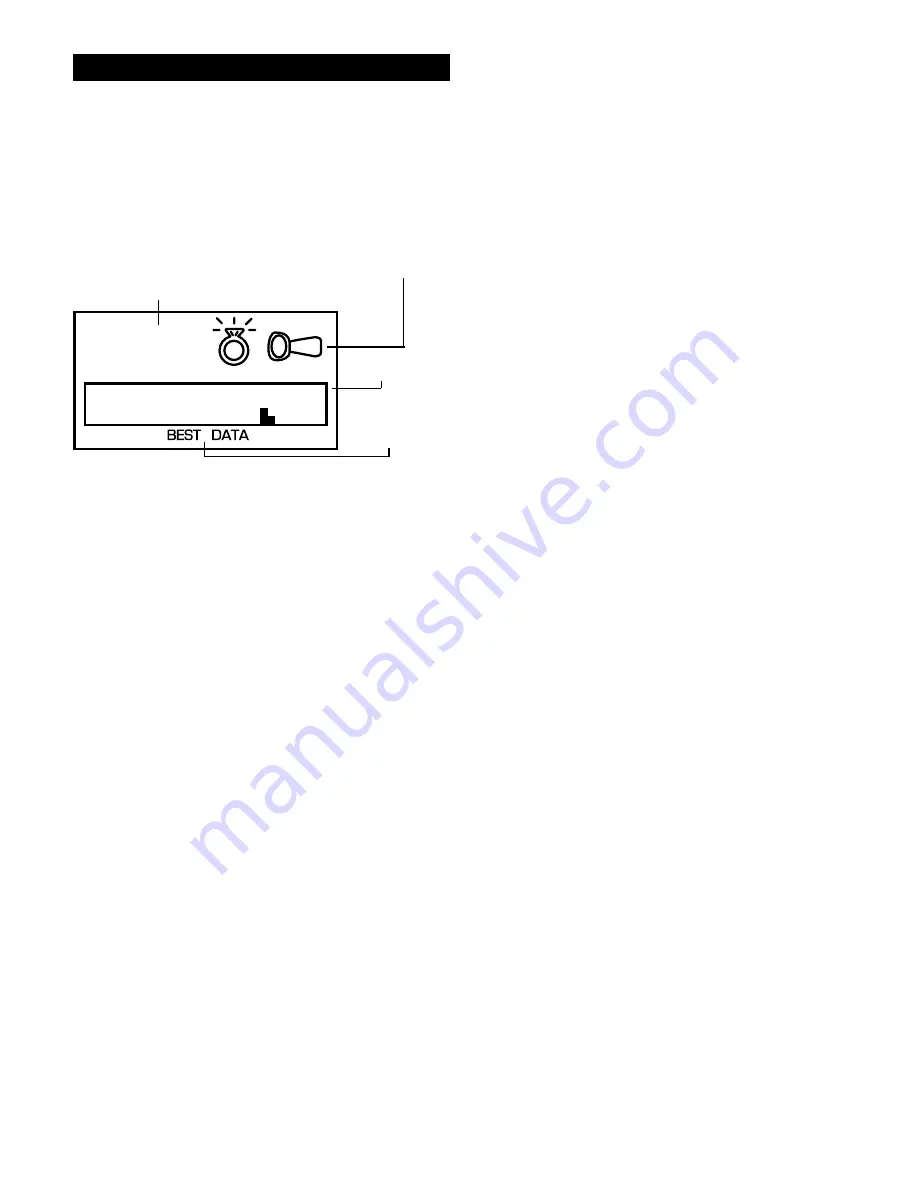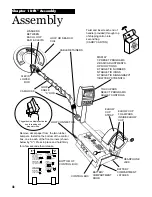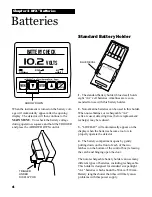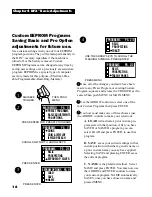
10
Chapter 3 DFX
™
Quick Start
Live Search Screen - what is it telling me?
VISUAL
DISCRIMINATION
INDICATION-V.D.I. NUMBER
("TARGET REFERENCE NUMBER")
POSSIBLE TARGET IDENTITIES
("ICONS")
SIGNAGRAPH
BARGRAPH
1. V.D.I. Visual Discrimination Indication
("target reference number")
In the upper left hand-side of the display there is a
V.D.I. number that corresponds to the V.D.I.
SCALE painted on the top right-hand side of the
control box. It also corresponds to the Discriminate
Edit feature allowing you to reject or accept targets
based on their V.D.I. reference number. There are
"+" numbers for nonferrous (not of iron) targets,
and "-" numbers for ferrous (iron) targets. Rejected
V.D.I. numbers may not appear if the VISUAL
DISCRIMINATION feature is ON. Reasonably
consistent V.D.I. reference numbers (
±
five digits),
in a desirable area of the chart is a vote for digging
the target.
2. Possible Target Identities ("Probable or most
likely target")
To the right of the V.D.I. number, possible target
identities will be represented graphically. These
graphics are called ICONS. A fairly consistent
indication of a desirable target is another vote to dig
the target. One or two possible target icons may
appear. There is significance to which icon appears
first. The first target to appear is always the most
likely, the second is another possibility, slightly less
likely than the first.
3. SignaGraph
®
The SignaGraph
®
at the bottom of the display
provides a final vote as to whether or not the target
should be dug.
+48
-95
+95
A. Sweep the loop over the target several times and
look at the SignaGraph
®
. The SignaGraph® auto-
matically clears itself (FADE RATE) so that it
doesn't fill the screen with information from past
loop sweeps. An operator has limited time to look
at the SignaGraph
®
. If you want to look at the
information again, sweep the loop over the target
several more times. The fading of the SignaGraph
®
information can be slowed or speeded (FADE
RATE) to operator preference. This is completed in
the PRO OPTIONS under DISPLAY. Automatic
AVERAGING and/or ACCUMULATING of
SignaGraph
®
information is also available (See
PRO OPTIONS).
B. Valuable targets will show up on the positive
side of the graph. The positive area of the chart is
the section located to the right of the zero.
C. Look for consistency. In ideal conditions, coins
and jewelry produce one or two bars to the right of
zero. Trash produces several bars, sometimes on
both sides of zero.
D. In less than ideal conditions, coins may produce
a wider pattern of bars. Most trash targets produce a
recognizably different pattern than valuable targets.
E. One of the most visual benefits of the
SignaGraph
®
is the ability to show a smear pattern
on iron targets that often fool the other methods of
identification. An iron target will likely show
definite bars on both the negative and positive sides
of the SignaGraph
®
, often smearing all the way
across the entire chart. Valuable targets should not
produce such obviously wide patterns. In very bad
ground conditions, a good target may have a few
small bar segments in the negative area due to
mineralization. However, the pattern will show
mostly positive bars, in a fairly narrow tall group.
MULTIFREQUENCY
METHOD
CURRENTLY IN
USE








































